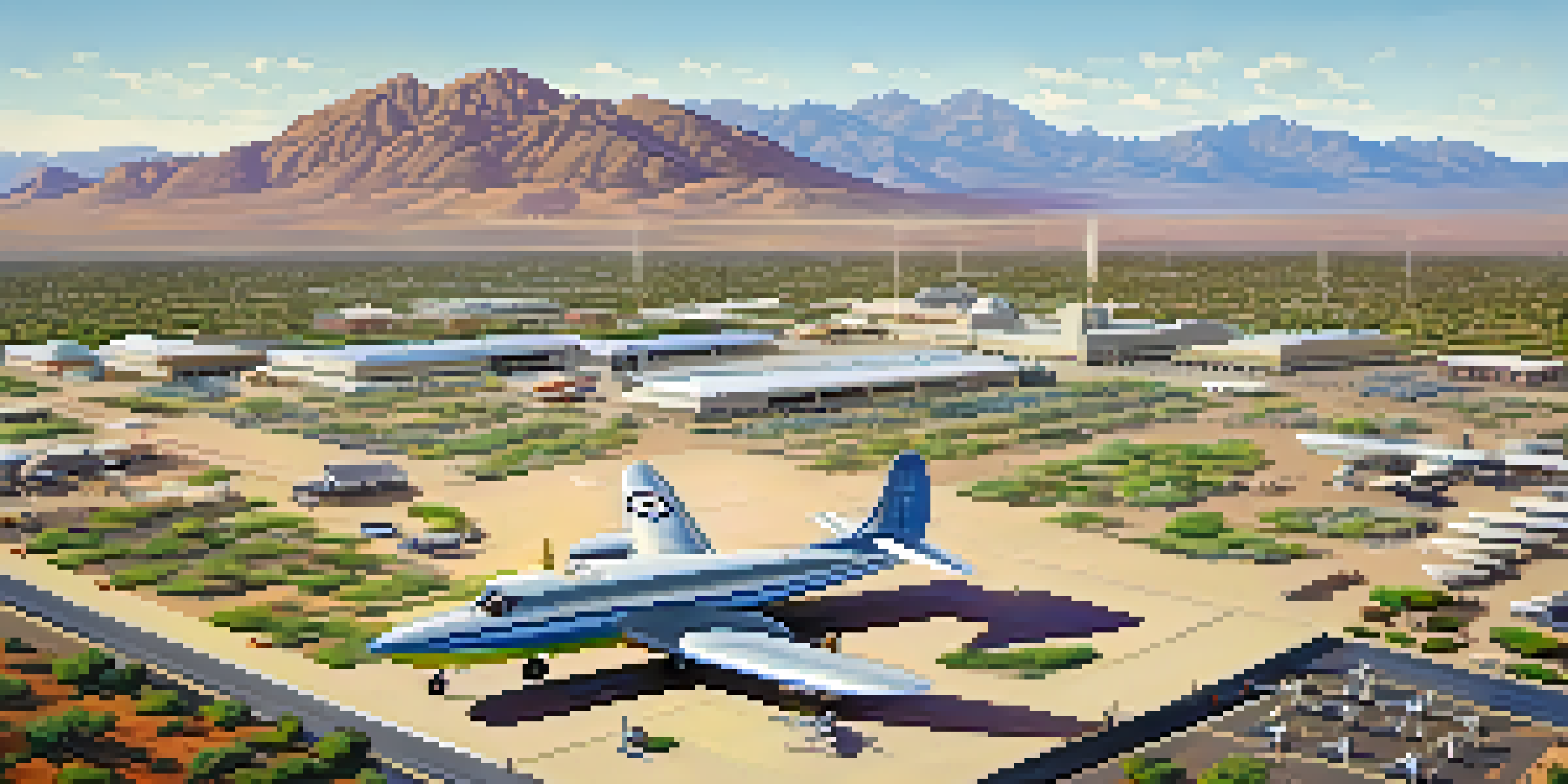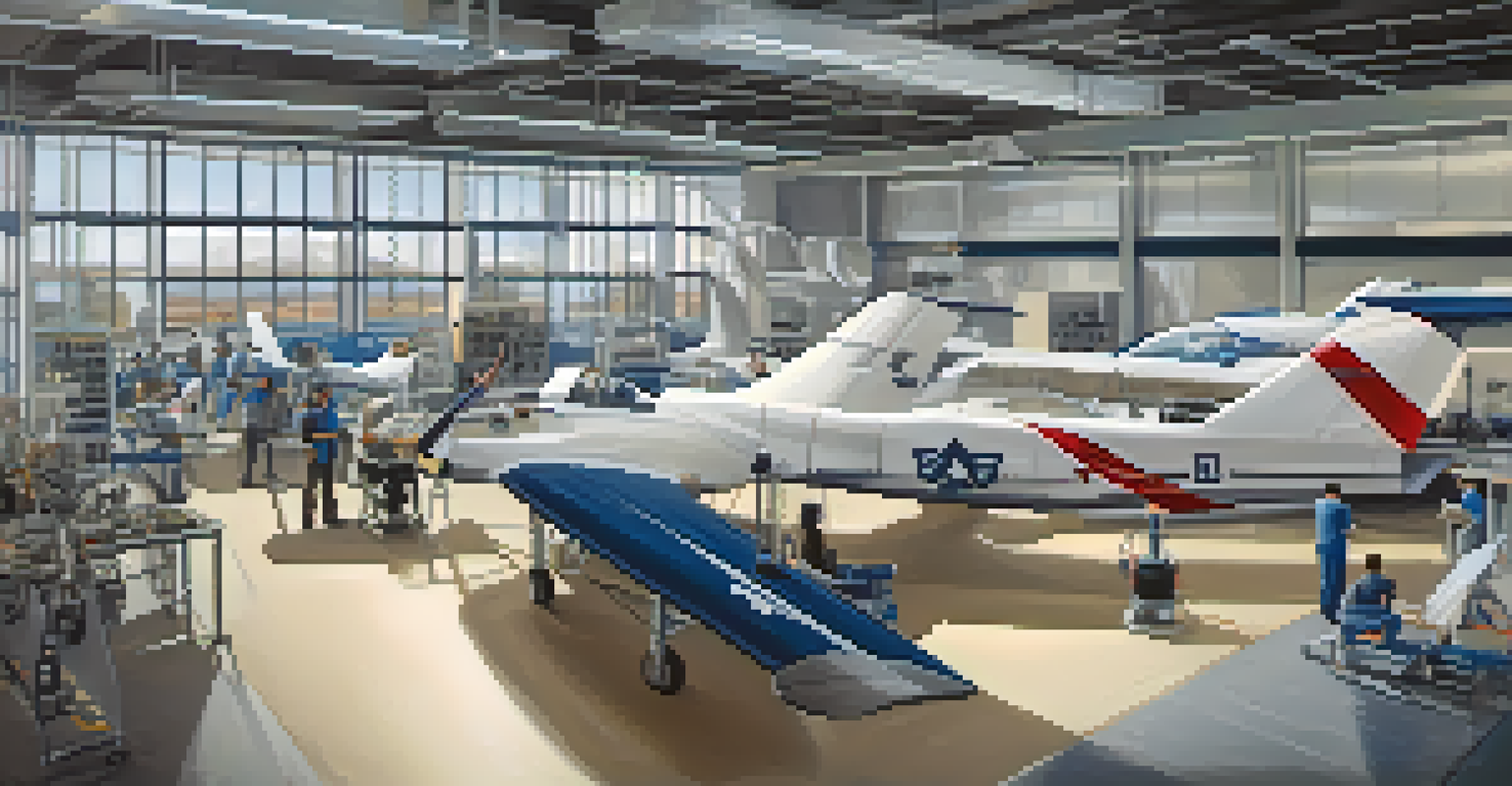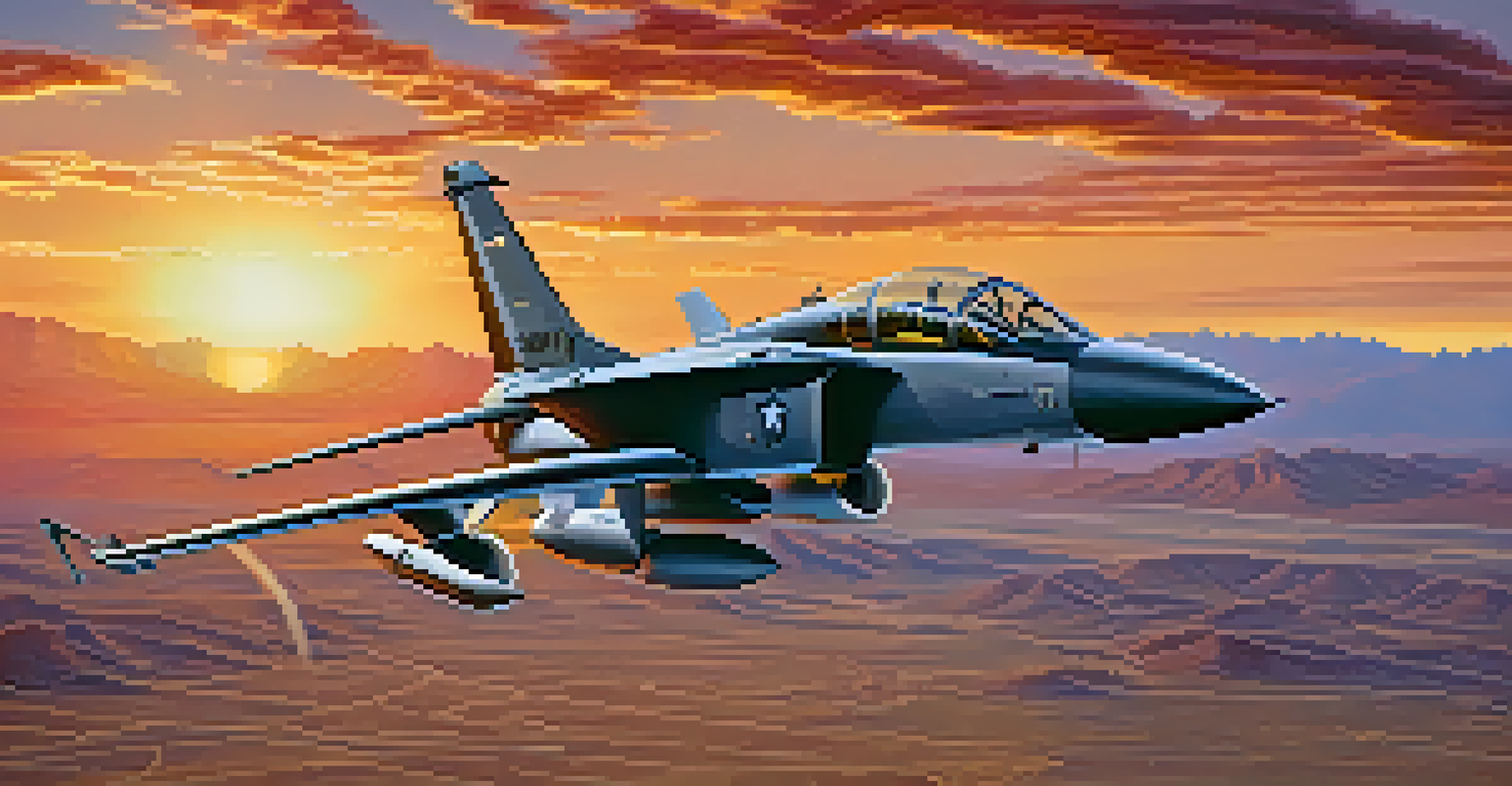Tucson's Aerospace Legacy: From Early Innovations to Today

Introduction to Tucson's Aerospace Heritage
Tucson has a deep-rooted connection to the aerospace industry, serving as a hub for innovation since the early 20th century. The city's strategic location and favorable climate attracted pioneers who sought to push the boundaries of aviation. As a result, Tucson has become home to numerous aerospace companies and military installations, shaping its identity and economy.
The engine of innovation is fueled by the collaboration between education and industry.
From the establishment of early aviation schools to the significant presence of major players like Raytheon and Bombardier, Tucson's aerospace story is one of growth and evolution. These organizations have not only contributed to technological advancements but have also provided thousands of jobs, making aerospace a vital part of the local economy. The intertwining of education and industry has created a rich ecosystem that continues to thrive.
As we delve deeper into Tucson's aerospace legacy, we'll explore key milestones that highlight its transformation from early innovations to the cutting-edge technologies of today. Understanding this history provides valuable insights into the city's future in aerospace and its role on the global stage.
The Early Days: Pioneering Aviation in Tucson
The early 1900s marked the beginning of Tucson’s aviation journey, with the establishment of flight schools and airshows that captivated the public's imagination. Notable figures like aviation pioneer Frank R. McGowan emerged during this time, showcasing their skills and inspiring others to explore the skies. The burgeoning interest in aviation laid the groundwork for what would become a thriving industry.

By the 1920s and 1930s, Tucson's aviation scene continued to grow, with the construction of the Tucson Municipal Airport in 1928. This facility became a focal point for both commercial and military aviation, attracting pilots and aircraft manufacturers alike. The airport served not just as a transportation hub but also as a place where innovation could flourish.
Tucson's Aerospace Heritage
Tucson has a rich history in the aerospace industry, evolving from early aviation schools to a hub for major companies and military installations.
These early developments set the stage for Tucson's significant contributions to aviation technology, marking the city as a vital player in the aerospace landscape. This foundation would eventually lead to larger companies and military presence, cementing Tucson's status as a key aerospace hub.
World War II: A Catalyst for Aerospace Growth
World War II acted as a significant catalyst for the aerospace industry in Tucson, as the demand for aircraft and related technologies surged. The establishment of the Davis-Monthan Air Force Base in 1941 marked a turning point, providing a training facility for pilots and mechanics. This influx of military personnel and resources transformed the local economy and spurred innovation.
Aerospace is not just about flying; it’s about reaching for the stars and pushing the boundaries of what’s possible.
During the war, various companies began to set up shop in Tucson to support the military efforts, including aircraft manufacturing and maintenance services. The collaboration between the military and private sectors led to rapid advancements in aviation technology, positioning Tucson as a critical contributor to the war effort. This period not only solidified the city’s aerospace identity but also fostered a community passionate about flight.
Post-war, many of the innovations and skills developed during the conflict transitioned into the civilian sector, allowing Tucson to continue its growth as an aerospace leader. The legacy of World War II laid the groundwork for future advancements and military partnerships that would shape the industry for decades to come.
The Cold War Era: Innovation and Expansion
The Cold War era brought about a new wave of innovation and expansion in Tucson's aerospace sector, with a focus on advanced military technologies and aerospace research. Companies like Hughes Aircraft and McDonnell Douglas established operations in the area, driven by the demand for cutting-edge defense systems. This period saw significant investment in research and development, greatly enhancing Tucson's aerospace capabilities.
With the presence of the University of Arizona and its engineering programs, the city became a breeding ground for talent and innovation. Collaborative efforts between academia and industry resulted in groundbreaking technologies that not only benefited national defense but also had civilian applications. This synergy fostered a culture of creativity and excellence within the aerospace community.
Education Fuels Aerospace Talent
Educational institutions in Tucson, particularly the University of Arizona, play a crucial role in providing skilled graduates essential for the aerospace sector.
As the Cold War progressed, Tucson's role in the aerospace industry continued to evolve, leading to advancements in satellite technology and aerospace engineering. The city's commitment to innovation during this time solidified its reputation as a leader in aerospace development, paving the way for future endeavors.
Modern Aerospace: Key Players and Innovations
Today, Tucson is home to a diverse range of aerospace companies, each contributing to the industry in unique ways. Companies like Raytheon Missiles & Defense, which specializes in advanced weaponry, and Bombardier, known for its regional jets, showcase the city’s versatility in aerospace manufacturing. These organizations not only drive technological advancements but also play a crucial role in the local economy.
Innovations in Tucson's aerospace sector are not limited to manufacturing; research and development also thrive. Collaborations with local universities and research institutions lead to advancements in areas like unmanned aerial systems (UAS) and satellite technology. This focus on cutting-edge research ensures that Tucson remains competitive in the ever-evolving aerospace landscape.
Moreover, Tucson's aerospace community is focused on sustainability and addressing the challenges of climate change. Initiatives aimed at developing more environmentally friendly technologies underscore the city's commitment to leading the industry into a sustainable future. As we look forward, Tucson's modern aerospace sector promises to continue its legacy of innovation and excellence.
Educational Institutions: Fostering Future Talent
Educational institutions in Tucson play a pivotal role in shaping the future of the aerospace industry by providing a skilled workforce. The University of Arizona, renowned for its aerospace engineering program, produces graduates who are well-prepared to tackle the challenges of the industry. This strong emphasis on education ensures that the local aerospace sector has access to fresh talent and innovative ideas.
In addition to traditional universities, vocational programs and community colleges offer specialized training in aviation and aerospace technologies. These programs are designed to meet the industry's needs, equipping students with practical skills that are immediately applicable in the workforce. This focus on hands-on learning enhances the employability of graduates and supports local businesses.
Future Innovations in Aerospace
Tucson's aerospace industry is set to grow with a focus on sustainable technologies and continued collaboration between companies and educational institutions.
Collaboration between educational institutions and aerospace companies fosters a culture of innovation and research. Internships, co-op programs, and research partnerships create pathways for students to gain real-world experience while contributing to advancements in the field. This synergy between education and industry is crucial for maintaining Tucson's status as a leader in aerospace.
The Future of Tucson's Aerospace Industry
As we look ahead, Tucson's aerospace industry is poised for continued growth and innovation. The rise of new technologies, such as electric and hybrid aircraft, presents exciting opportunities for local companies to lead the charge in sustainable aviation. This focus on greener technologies aligns with global trends and positions Tucson as a key player in the future of aerospace.
Moreover, the ongoing collaboration between the aerospace sector and educational institutions will ensure a steady pipeline of talent and innovation. As new challenges arise, the ability to adapt and innovate will be crucial for the industry's success. Tucson's commitment to research and development will play an essential role in shaping the future landscape of aerospace.

In conclusion, Tucson's aerospace legacy is rich with history and promise. By embracing innovation, sustainability, and education, the city is set to maintain its status as a vital hub for aerospace advancements, making significant contributions to the industry for many years to come.